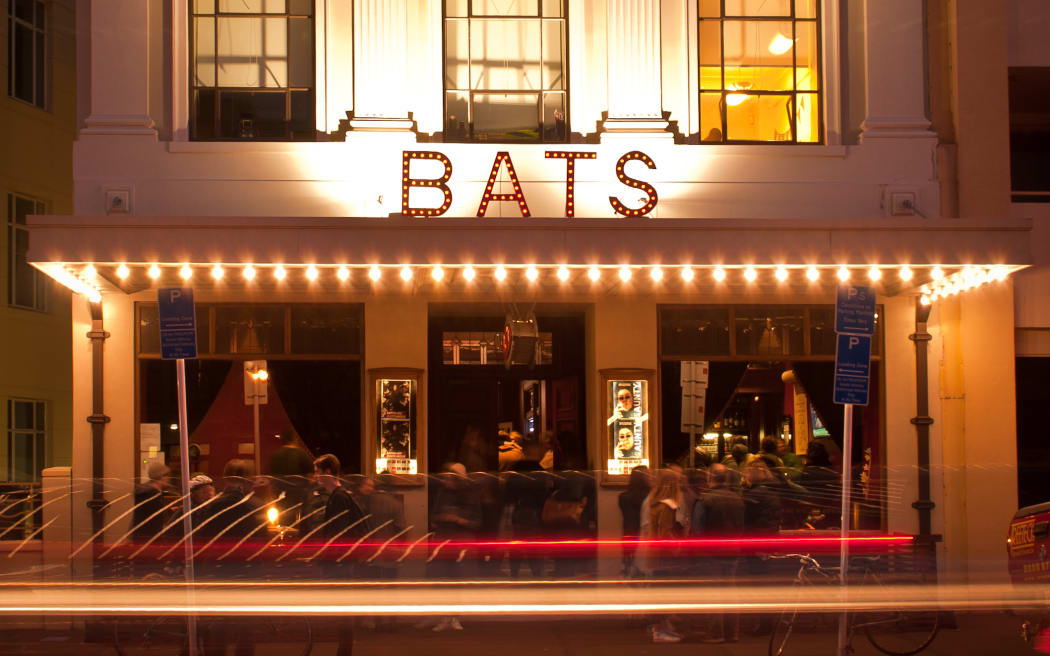With audience numbers struggling to bounce back from the effects of Covid-19, many of the people keeping Aotearoa's vibrant theatre scene alive are more likely to break the bank putting on a show than to break a leg. Sarah Robson looks at the future of the theatre scene.

Scenes from a Yellow Peril, performed at the ASB Waterfront Theatre in 2022. Photo: Andi Crown Photography
When was the last time you went out to the theatre?
For many, it's been a long time. Some of us may never have been at all.
Theatre was never a big money-maker, but now more than ever, the industry is in dire straits. Lockdowns and gathering restrictions left hundreds of shows cancelled, and thousands more workers in the arts without a source of income. And theatre has never really fully recovered; a recent survey into the arts sector revealed that audience interest is still low, and workers are worried they won't make enough money to get by.
On top of Covid woes, there's the infinite expanse of online content to compete with. Getting people off their devices and into brick-and-mortar theatres is proving a huge challenge.
Today on The Detail, Sarah Robson looks at theatre's two-pronged struggle: to keep theatre relevant, as well as financially viable.
Chinese-Kiwi playwright Nathan Joe has just finished a triumphant season of his work Scenes from a Yellow Peril at the ASB Waterfront Theatre in Auckland. Raised in Christchurch, he says he never considered going into the theatre industry until living in the more metropolitan North Island cities of Wellington and Auckland.
"Christchurch wasn't exactly known for its strong, independent and diverse theatre scene," says Joe. "There was the Court Theatre, which I did enjoy going to every now and then, but I would never say I watched a show there and thought 'I could do that', or 'my play could be on that stage'."
Scenes from a Yellow Peril is a genre-bending play exploring Asian identity, racism and privilege in New Zealand. He tells The Detail getting his play staged at a professional theatre, and co-produced by one of New Zealand's leading professional companies, the Auckland Theatre Company (ATC), was a serious coup.
"It's so incredibly difficult to stage a play at-scale. In many regards, it's acts of perseverance, and timing, and luck, and the right person being there at the right time, and the right people being involved. So that, all up, was about a four year process to put on that play at the Waterfront."
The play was not simple, either. There's elaborate costuming, live music, dance, and lighting - and a high-calibre team to pay to put it all together. In addition to some extra support from ATC, Joe and his team secured $75,000 in funding from Creative New Zealand to put on the play, more than he's ever had access to.
"I've done shows for $7500 before. That's the kind of world that I'm typically playing with.
"We found [funding] very difficult. We got declined twice before getting it the third time. And, you know, most people would've stopped applying after a certain point, because it's quite dispiriting.
"The reality is, to do a show like Scenes from a Yellow Peril, you need funding. To do the arts properly anywhere, and pay people properly, you need funding. So Creative New Zealand, like it or not, when it comes to independent artists, they're essentially the gatekeepers. That's not something they're pleased about either, but it is the situation we're in because we have such limited ways for shows to happen."

The BATS Theatre in Wellington. Photo: Maeve O'Connell
The New Zealand theatre scene has had something of a reckoning in the past few years, with increased scrutiny being put on what plays, playwrights and actors professional theatre companies choose to programme and promote. People noticed that the theatre being made was predominantly Pākehā, sorely lacking in cultural diversity.
"I think historically it's been absolutely quite terrible," says Joe.
"Auckland Theatre Company, historically, has had a whole year of shows that don't reflect Auckland. That's ironic and hypocritical at worst, and ignorant at best."
Jonty Hendry, the chief executive of the BATS Theatre in Wellington, recalls the New Zealand theatre scene of his youth, which used to be known as "the Britain of the south seas", primarily performing classics from the likes of Shakespeare and Chekhov.
"In those days, the professional theatre in a way was modelled on the British repertory system," says Hendry.
"It had some New Zealand work, but little New Zealand work, and was trying to show the best of what's overseas. I think if you were to jump now four decades, I think the real energy now isn't a case of can we do it, maybe the question is how do we best do it to reflect ourselves.
"If we're going to invest, surely we should be investing in the work that's reflecting us."
Nathan Joe is hopeful of the direction for New Zealand theatre.
"I think the landscape is changing. And you can see companies like Auckland Theatre Company now with [plays like] Dawn Raids, with The Haka Party Incident, with my play, really making an effort toward reflecting the city that the company represents," says Joe.
Find out how to listen and subscribe to The Detail here.
You can also stay up-to-date by liking us on Facebook or following us on Twitter.

Photo:



